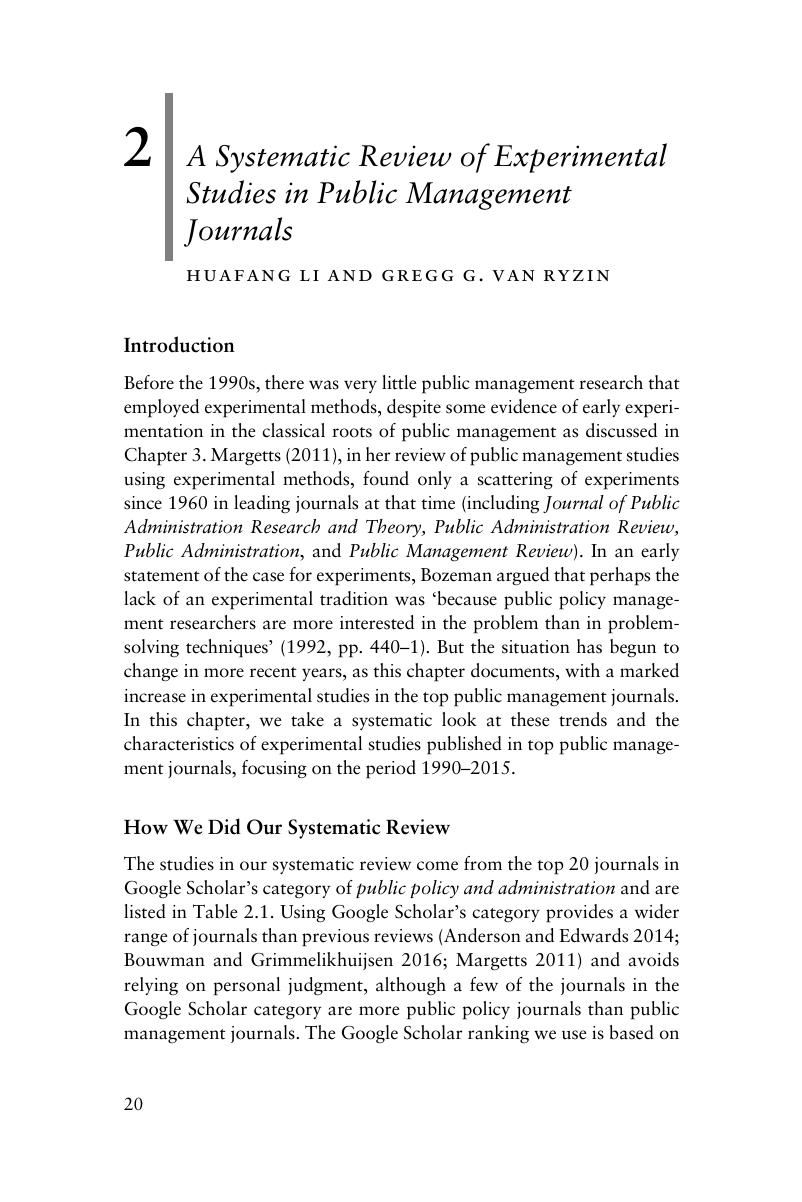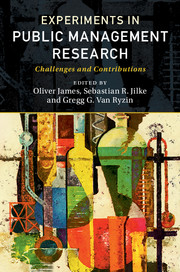Book contents
- Experiments in Public Management Research
- Experiments in Public Management Research
- Copyright page
- Contents
- Figures
- Tables
- Contributors
- Preface and Acknowledgements
- Part I Context
- 1 Introduction: Experiments in Public Management Research
- 2 A Systematic Review of Experimental Studies in Public Management Journals
- 3 Experiments and the Classical Roots of Public Administration: Comments on the Potential Utility of Experiments for Contemporary Public Management
- Part II Methods
- Part III Substantive Contributions
- Part IV Issues and Implications
- Appendix Recommended Reporting Guidelines for Experiments in Public Management, a Checklist1
- Index
- References
2 - A Systematic Review of Experimental Studies in Public Management Journals
from Part I - Context
Published online by Cambridge University Press: 27 July 2017
- Experiments in Public Management Research
- Experiments in Public Management Research
- Copyright page
- Contents
- Figures
- Tables
- Contributors
- Preface and Acknowledgements
- Part I Context
- 1 Introduction: Experiments in Public Management Research
- 2 A Systematic Review of Experimental Studies in Public Management Journals
- 3 Experiments and the Classical Roots of Public Administration: Comments on the Potential Utility of Experiments for Contemporary Public Management
- Part II Methods
- Part III Substantive Contributions
- Part IV Issues and Implications
- Appendix Recommended Reporting Guidelines for Experiments in Public Management, a Checklist1
- Index
- References
Summary

- Type
- Chapter
- Information
- Experiments in Public Management ResearchChallenges and Contributions, pp. 20 - 36Publisher: Cambridge University PressPrint publication year: 2017
References
- 21
- Cited by



